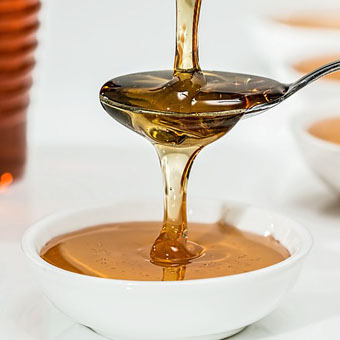THE ABIDING LIFE
Jonathan and Saul
Learning to live in God's abundance
By Gwen Sellers


Single Page/Printer Friendly

The Old Testament has some pretty interesting stories. My small group is currently reading 1 Samuel and I was struck in a new way by a familiar account. Remember when Jonathan and his armor bearer went to attack the Philistines on their own? Jonathan thought God might give them victory so he and his armor bearer went to test the waters. God did, indeed, give them victory. And then the rest of Saul's army joined in the fight. First Samuel 14:20–23 says:
Then Saul and all the people who were with him rallied and went into the battle. And behold, every Philistine's sword was against his fellow, and there was very great confusion. Now the Hebrews who had been with the Philistines before that time and who had gone up with them into the camp, even they also turned to be with the Israelites who were with Saul and Jonathan. Likewise, when all the men of Israel who had hidden themselves in the hill country of Ephraim heard that the Philistines were fleeing, they too followed hard after them in the battle. So the Lord saved Israel that day. And the battle passed beyond Beth-aven.It sounds like a pretty big win. But 1 Samuel 14:24 says, "And the men of Israel had been hard pressed that day, so Saul had laid an oath on the people, saying, 'Cursed be the man who eats food until it is evening and I am avenged on my enemies.' So none of the people had tasted food." Jonathan didn't hear about this vow. He was hungry from a day of fighting so when he saw some honey, he ate it. After hearing about his father's vow, Jonathan said, "My father has troubled the land. See how my eyes have become bright because I tasted a little of this honey. How much better if the people had eaten freely today of the spoil of their enemies that they found. For now the defeat among the Philistines has not been great" (1 Samuel 14:29–30). Jonathan saw abundance and victory, provision and potential. Saul saw being hard-pressed and responded with self-imposed righteousness. Rather than equip his troops, Saul had them fast. Rather than serve those he led, Saul imposed on them. And things did not go well...
After striking down more of their enemies, and hungry and tired as they were, the people soon "pounced on the spoil and took sheep and oxen and calves and slaughtered them on the ground. And the people ate them with the blood" (1 Samuel 14:32). This was a sin against God, which Saul recognized. So Saul made provisions for the people to slaughter and consume their food appropriately. However, when Saul next sought to attack the Philistines and a priest suggested he ask God about doing so, God did not respond. Saul then ordered lots to be cast to find out if the issue was with the people or with him and Jonathan, vowing that the guilty party, even be it his son, would die. The lot fell on Jonathan, who confessed to his father about eating the honey. Saul was ready to kill him, but the people intervened.
The contrast between Jonathan and Saul in this account was evident to me in a way it never has been before. Jonathan went out to see what God might do, while Saul and his army were seemingly in stasis. In the battle, Jonathan rejoiced in the victory they were given. He ate honey and enjoyed it. In Jonathan I see a man who is confident in his God and who delights in the abundance God provides. He is willing to engage in God's work and to receive refreshment from God. Saul, on the other hand, is seeking to do things on his own. He makes rash vows and seemingly attempts to manipulate God. Rather than rejoice in victory, he imposes a fast on his people that ultimately leads them to sin. He then tries to appease God. Rather than live in the abundance and direction God provides, Saul attempts to go his own way.
I can too often be like Saul. I sometimes cower in fear or press ahead with my own plan rather than seek God's counsel. I can also be self-righteous. It can be easy to think that if we restrict ourselves enough or make enough sacrifices or have a dour attitude about all that remains to be done, we are actually pleasing God. It can be easy to focus on the enemies that still need to be vanquished and forget to praise God for the ones that are already defeated. It can be tempting to think that if we do enough right and avoid enough wrong, we can manipulate God into owing us something. In short, it's easy to think that life is all about us and our performance, to make up our own theory of how things are rather than live in God's truth.

Continue to Page Two
comments powered by Disqus
Published 2-16-16

